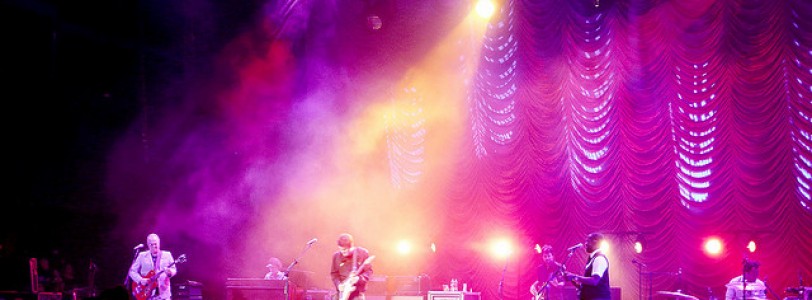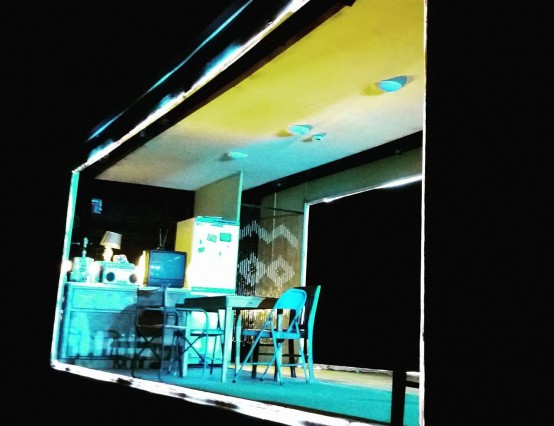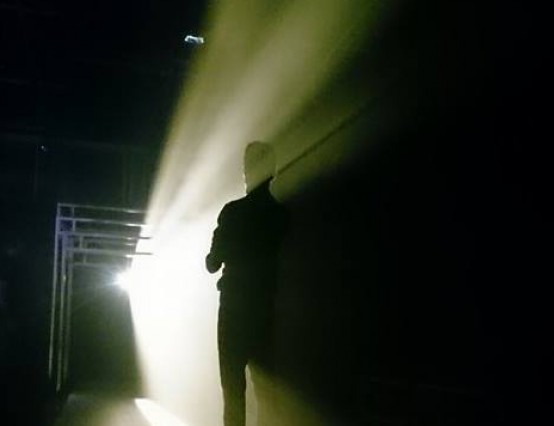'Don't let anyone tell you that you're not creative.' This was the underlying message of one of my lectures last term, when my peers and I were presented with our first 'design' project. As an apprehensive group of freshers, we were challenged to develop a sound design for an extract from a given play and then present it back to the group. A totally terrifying idea for most of us.
Having studied Fine Art as an A Level I didn't consider myself entirely uncreative; I am also a strong believer in the notion that everyone can be artistic and creative. Despite this, I was still petrified by the idea of creating a sound design. I certainly didn't trust my opinion of what sounded good and what didn't, I'm not confident I could identify the difference in sound quality between a .wav and an .mp3, and I had only just become vaguely familiar with the equipment and software I would have to use to make and playback the sounds I created. However, I put in the hours and logically worked through ideas, committing to them even if I wasn't entirely convinced myself, and on deadline day I presented a sound design that wasn't entirely dire and later received, along with tips for improvement, positive feedback for my efforts.
My confidence in both my creativity and my technical skill, although still a sapling, grew a little.
Time has passed and I have embraced as many opportunities as possible to immerse myself in technology that is unfamiliar to me. I have tried not to shy from asking questions, no matter how silly I thought others might think me for not knowing the answers already, and I have learnt a ridiculous amount (enjoying it a lot more than I thought I would). I now feel like I could claim a very simple understanding of the basic technical kit used in theatre. And so I applied for, and have been granted the chance, to I face my next challenge as a 'creative': my first complete lighting design. I am once again terrified. I am also very excited.
Prior to embarking on this challenge that will test both my creativity and my technical skill, I have received two pieces of advice that have stuck with me. The first:
'Don't worry about the kit: think about the design and what you want the show to look like and once you've decided that, work out what kit you'll need to do that job and how you'll need to use it.'
This illustrates how technical skill shouldn't limit creativity. I would argue that knowing about a particular effect that can be achieved through a specific, uncommon lighting fixture or accessory might inspire ideas you otherwise wouldn't consider. This therefore could mean that lack of knowledge may be limiting, but it certainly isn't restricting. I think these are very different ideas, as not knowing how to achieve an idea shouldn't restrict your imagination. You might not know technically how to create intricately crafted icing and decorate your ideal occasion cake but that wouldn't stop you from imagining said cake would it?
The second piece of advice I received only recently.
'Keep it simple. Make it pretty.'
For me this rings true – on many occasions in many different situations I have seen something complex next to something far simpler and found the latter of the two far more appealing. Not to say intricacy and detail should be disregarded, just that more complex doesn't necessarily equate to better. For me at present, I plan to apply this both to my design aesthetically and the kit I choose to use. I don't intend to use the most high tech kit if a basic lantern will do the require job. This takes the pressure off needing to know more complicated kit than necessary.
Of course I will eventually need to think 'technically'. I will need to create a design where I have considered the height of the space and performers, and the limitation the set presents. I will need to think about beam angles and side elevations and potential light spill and fixture types and focusing and programming and what desk I will use….but for now, I'm just thinking about reading the script, talking with my designer and director, and playing with ideas in collaboration with them about the atmosphere and aesthetic we want to create. The practicalities are important of course, but I believe (and maybe I'm naïve, this is my first time designing afterall) that they should come second to the creative ideas.
So to conclude technical knowledge and skill are important yes, but we should never let them put limitations on our creativity and ideas.
Now, I just need to find some confidence to trust in my own creativity, but that is an entirely different topic altogether…








0 Comments